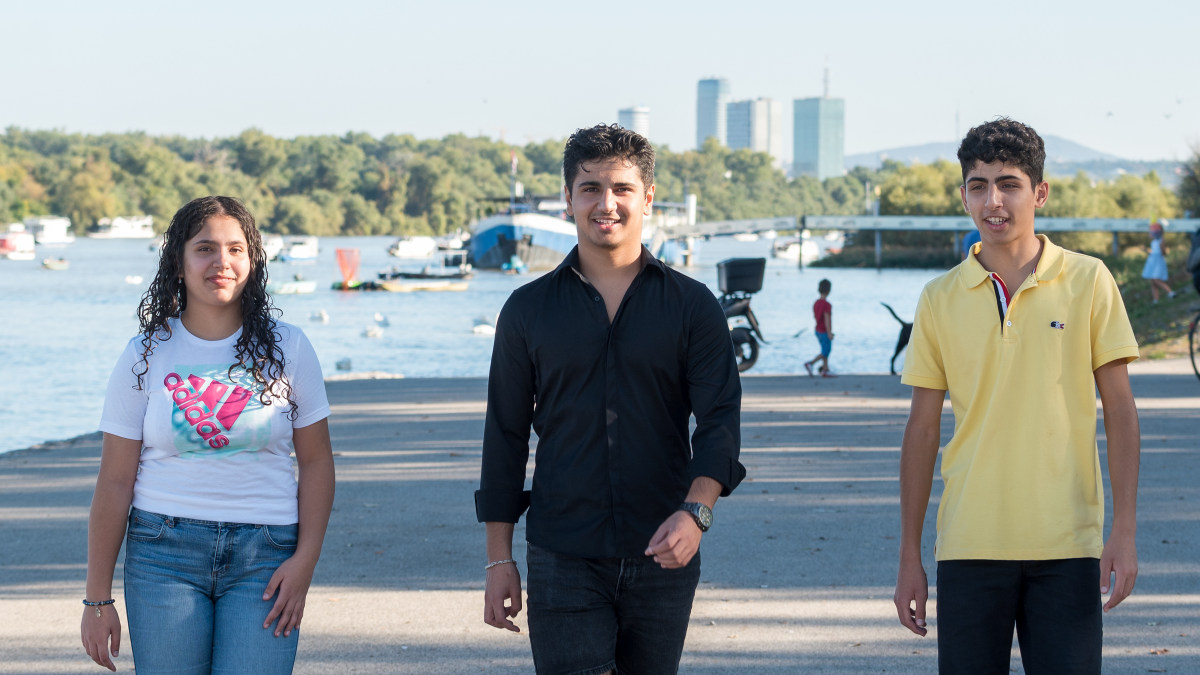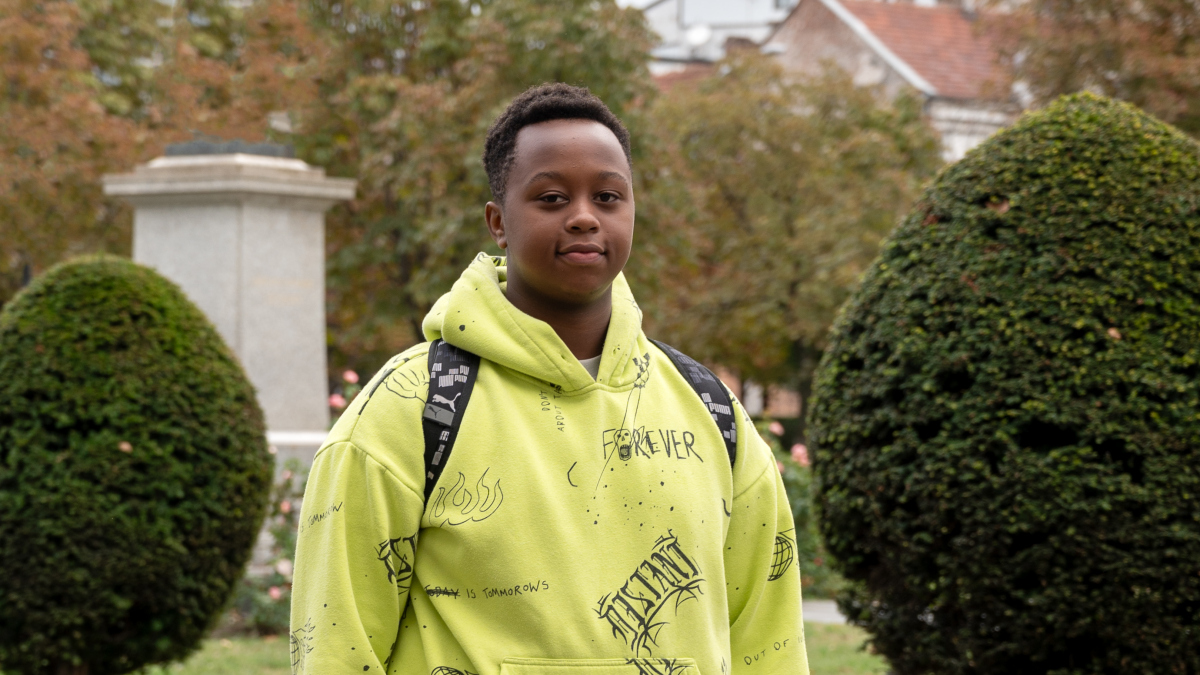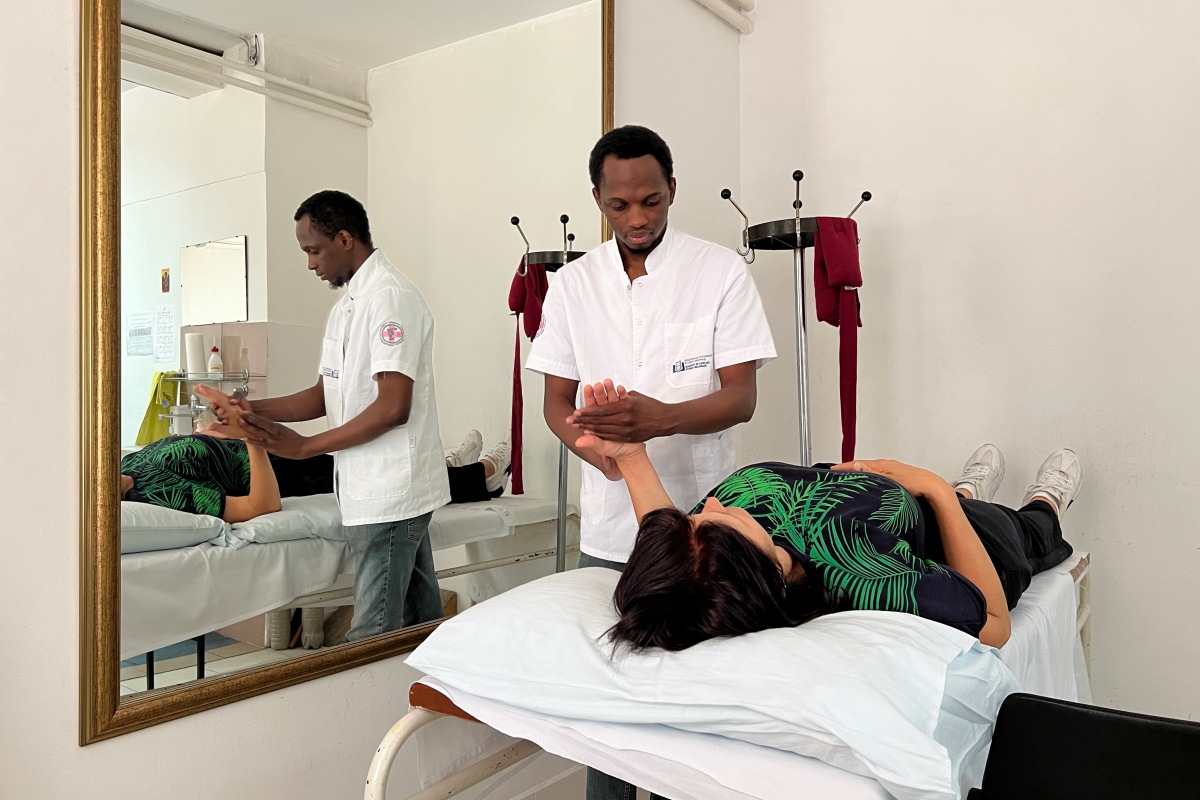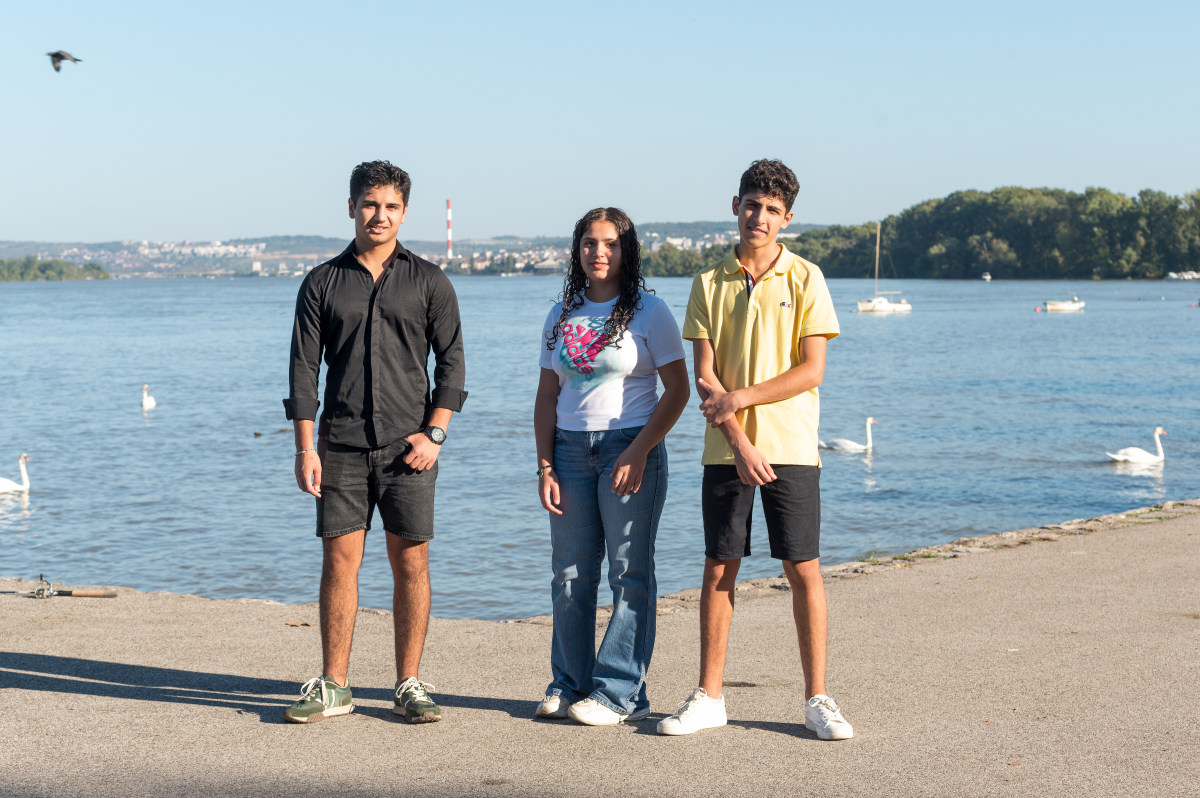Resilience and Adaptation: Refugee Students in Serbia Share Their Journey of Overcoming Challenges and Building New Lives

As the new school year begins in Serbia, refugee students from various countries face the challenge of adapting to a new social environment while settling into the Serbian education system. Whether from Afghanistan, Burundi, or Guinea, these students work hard to overcome language barriers, adjust to new customs, and integrate with their peers. Despite the initial difficulties, many are making remarkable progress, thanks to support from their schools, friends, and families. Their experiences reflect the struggles and the achievements as they strive to build a future in a country that has welcomed them with open arms.
Ndamukanyo Yan Don Mike (15)
from Burundi
Although he is only 15, Mike from Burundi was a skilled negotiator when we arranged our meeting. The communication with this charming boy was in Serbian, and his responses were clear and precise. He had his requests regarding the meeting with me and the photographer, but ultimately, we agreed to meet “halfway.” The initial idea was to visit him at the Refugee Camp in Krnjača, where he lives with his mother and older brothers. However, we couldn’t do that because written approval from the Commissioner for Refugees was required to visit the camp, and we didn’t have time to wait for the administration. In the end, we met “kod Vuka” (Vuk Karadžić Monument).
“Mike, do you know who Vuk was, by whose monument we’re standing now?” I asked him. He wasn’t sure, but he knew it was someone significant in Serbian history.
“He’s responsible for making our language so simple. Was it hard for you to learn Serbian?”
“No,” he replied instantly, “I learned it at school. I can also read, but Cyrillic is easier for me,” he added, with a delighted expression of someone proud of his achievement. And he should be. He’s accomplished a lot in the three years since he’s been in Serbia. He attends a vocational secondary school for tourism and hospitality and wants to become a tour guide.

“Do you want to stay here in Serbia and work?”
“Of course, why not,” he answered, with a victorious smile again crossing his young face. He likes the people and the food here, especially ćevapi. He also finds school easier than in Burundi. He says they had to wear uniforms every day there and had a lot of homework, and sometimes they even got beaten when they didn’t do their homework.
“But only a little beating!” he quickly added when he saw our disapproving frowns. It wasn’t hard for him to get used to the new environment and the new school. It was a little challenging at first, but with the help of friends, which grew in number day by day, and with his language skills improving, the obstacles quickly disappeared.
Mike loves school, his friends, and Serbia. When he has free time with his friends or family, he enjoys walking around the city or swimming pool when the weather is nice.
We parted after a short conversation, with a promise that we would send him the photos by email and keep a copy of the magazine as a keepsake. He brightened our day with his presence.
Karim Jalla (22)
from Guinea
Karim, a 22-year-old shy student from Guinea, welcomed us into his home in Mirijevo. He lives there with his roommate, who is from Afghanistan. He has been in Belgrade for six years now. He attended secondary school at Tehnoart and is currently studying at the Medical Academy in Belgrade, where he is training to become an occupational therapist.
“What’s the difference between physiotherapist and occupational therapist?” I asked him to clarify.
Karim: Not too much, but still, some significant differences exist. The occupational therapist is a specialist who helps patients gain efficient recovery from trauma or injuries, he pointed out. “It’s more complex, and we must use multiple skills.”

“How you’re getting used to your new school?”
Karim: At first, it was difficult because it was a little strange. But as time passed, I got used to the students around me, and things started getting easier and more accessible. For now, I’m getting more and more familiar with the place.
What is the difference between schools in Guinea and Serbia?
Karim: For me, the only difference is just the schedule. Like in my country, you have just one shift. But when I started going to school in Serbia, it was a little strange and difficult for me. One week, you go in the morning, and the next week, you go in the afternoon.
So it was always like you had a problem with sleeping?
Karim: Yeah, because you have to wake up at six o’clock if you go in the morning. And then in the afternoon, it’s like, okay, let me sleep. So, it was a bit challenging because that was new to me. In my country, you have one shift. If you go in the morning, it’s from eight o’clock to maybe two.
Can you speak Serbian?
Karim: Yeah, I can speak Serbian.
Is the Serbian language hard for you to learn?
Karim: Yeah, it’s hard for me for two reasons. One, when you speak English, sometimes you become lazy about learning a new language because it’s complicated. So, if you meet someone who speaks English, you feel like, “Oh, I don’t need to bother myself.
Do you need Serbian for your classes?
Karim: Yeah, we do everything in Serbian. But there are some phrases I can’t pronounce or remember, so sometimes I need to translate.
Is that hard for you, too?
Karim: Yeah, it’s hard because I have to do everything in two ways. I need to understand both English and Serbian. So I translated everything into English to understand what I read in Serbian fully.
Do you have some friends at your school?
Karim: Yeah, I have friends now. At first, I just had their numbers, but now I can call them friends because we sometimes hang out—though not often.
Have you been accepted well by your new school friends?
Karim: Yeah, of course. They are friendly and ready to help whenever I need assistance. Most of the time, they’re eager to help.
What do you do in your free time here in Belgrade? What do you like to do?
Karim: Most of the time, I stay home, especially in winter. When it’s cold, I don’t usually go out. I only go out when it’s necessary. But during the summer, it’s normal—I go out, maybe grab a coffee or take a stroll. But during the winter, even if someone invites me out, I often find an excuse because I’m uncomfortable being outside for a long time.
Aryubi Trio
Daoud Mohammad Aryubi (17), Bakhtawara Aryubi (16), Salih Mohammad Aryubi (15)
from Afghanistan

In Zemun, on the beautiful Zemun Quay, we met the cheerful trio of the Aryubi family. They were inseparable, and all three had broad, genuine smiles that revealed their happiness. Daoud (17), the eldest, immediately greeted us, then strangers, and kindly introduced the three of them. Beside him were his sister Bakhtawara (16) and his youngest brother Salih (15).
Speaking in excellent Serbian, we agreed to take a few steps closer to the Danube, from where there’s a beautiful view of Belgrade, the city that welcomed them with open arms four years ago.
Where are you from?
Acting as the spokesperson for the trio, Daoud, always smiling and carefully watched by his younger brother and sister, began his story in excellent Serbian.
“We’re from Afghanistan. We came to Serbia with our family four years ago, and now we live not far from here in Zemun,” said Daoud.
All three of them attend school. Daoud is a student at the School of Mechanical Engineering and Arts “Tehnoart” in Zvezdara. His sister Bakhtawara added that she attends the Medical School in Deligradska, while their youngest brother Salih is a Zmaj School of Electrical Engineering student in Zemun.
When we complimented them on speaking Serbian well, they politely thanked us but admitted it was “difficult.”
“We learned the language online as soon as we arrived, and school helped a lot, as did talking to new friends who helped us. I understand a lot,” said Daoud, “it’s just the cases [padeži] that confuse me a bit.” This made all of us laugh. We explained to them that cases are a challenge even for many Serbs and that jokes are often made about them, so there’s no need to worry.
Is there a difference between schools in Afghanistan and Serbia?
“The subjects there were easier, and we also had to learn the language here. Once we learned it, it became easier to learn other subjects, like mechanics”.
How were you accepted by other students when you started school here?
“Good. At first, it was a bit slow because we had to speak to them in English, but once we learned the language, everything became easier.”
What do you do in your free time when there’s no school? Do you hang out with new friends?
At this point, the younger brother, Salih, joined the conversation excitedly and blurted out, “We play football.” Daoud added that he even trained in football for a while, but now he plays with friends outside the building. Sometimes, they play basketball, too, and they spend much time outdoors, coming to Zemun Quay and walking around the city.
To conclude the conversation, we asked if they wanted to stay in Serbia after finishing school, and all three enthusiastically answered yes. “Yes, we like it here.”